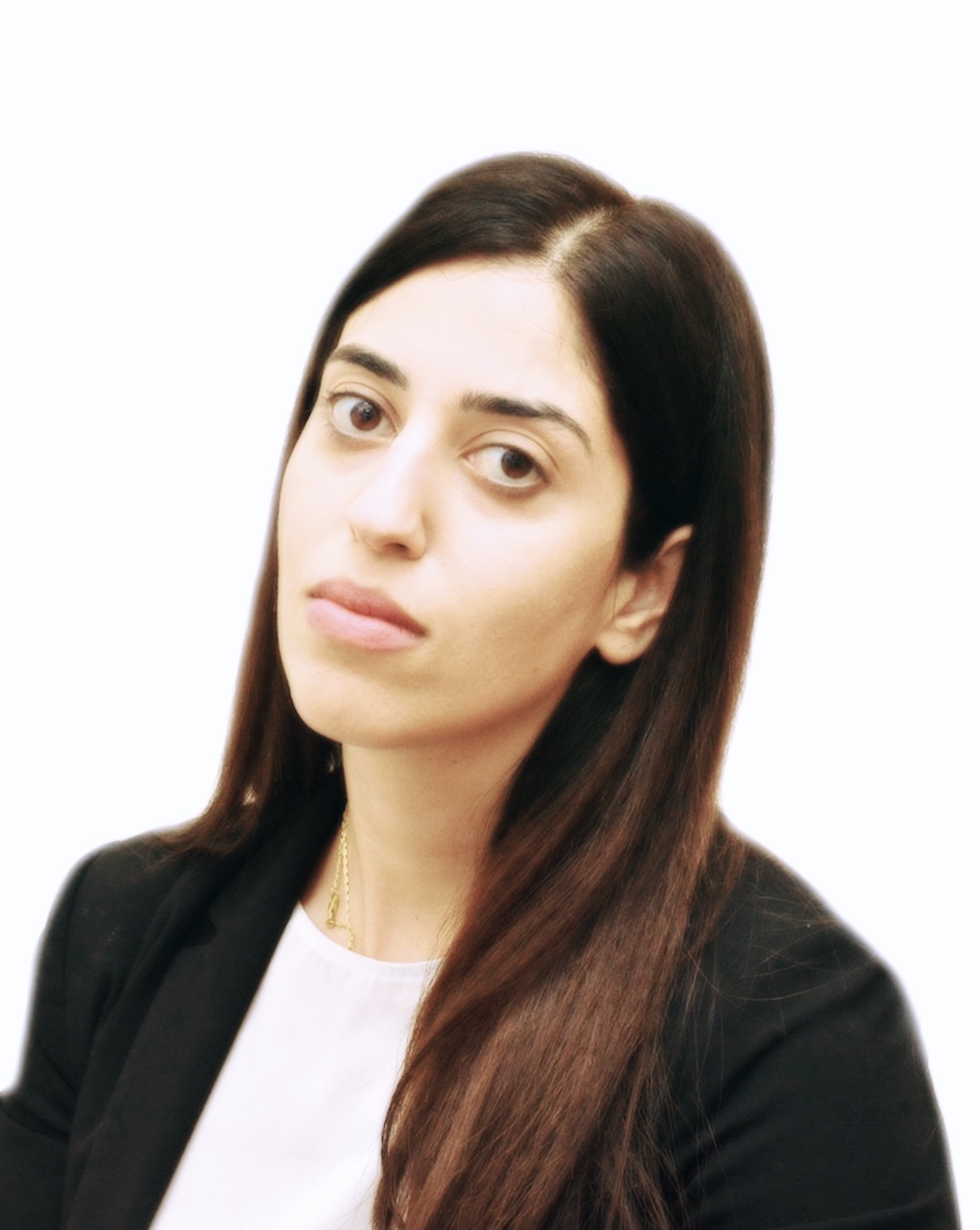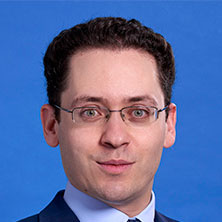Financial Mathematics MSc

Key information
Duration: 12 months
Attendance mode: Full-time
Fees: £31,500 (more information)
Location: Bunhill Row
Start of programme: September 2024
Application deadline: Rolling applications
Entry year: Showing course information for 2024
Develop effective trading strategies in the financial market with mathematical and statistical tools
Overview
Financial Mathematics MSc Who is it for?
Those interested in learning more about financial market and some of the mathematical techniques which are applied, in particular stochastic modelling. In our post-graduate master's in Financial Mathematics programme, you will focus on the tools that allow you to develop pricing models, learn about different financial securities and how they are used in risk management or asset management.
Consequently, emphasis is given to stochastic modelling and simulation techniques. You will also acquire a sound knowledge of econometrics, asset pricing, risk management and key financial securities such as equities, fixed income securities and derivatives. Finally, you will master advance programming skills in Python, Matlab and VBA.

"It is not only the knowledge and the support that Bayes Business School offers but it is also a life experience.
The engagement with students from other universities around the world helped me to understand how to work in a team and express your opinion for real life problems of Finance and use Mathematics in order to solve them."
- Christiana Theocharous
Why choose this course?
Networking opportunities with international experts
Bayes Financial Engineering Workshops have recently hosted speakers from: Morgan Stanley, Deutsche Bank, UBS, US Federal Reserve Bank, ICE, and many more
Tailor your course to suit you, switch degree pathway in your second term
You can choose MSc Quantitative Finance or MSc Mathematical Trade and Finance if they suit you more.
Course objectives
The post-graduate master's in Financial Mathematics programme focuses on mathematical concepts used by quants, including stochastic modelling, simulation techniques and econometrics. Students will learn about asset pricing, risk management, and different financial securities, including equities, fixed income and derivatives.
You will be taught Python and Matlab during terms 1 and 2, and you will have the opportunity to learn VBA in the elective term.
Term three offers you flexibility within your masters; either by writing a dissertation or undertaking a project, or by completing your postgraduate degree entirely choosing electives.
The difference between the MSc Financial Mathematics to MSc Mathematical Trading and Finance and MSc Quantitative Finance are core modules which focus on stochastic modelling and simulation techniques.
Teaching staff
The teaching staff on the MSc in Financial Mathematics have many years of practical experience working in the financial services sector and are also active researchers in their fields
This knowledge and experience inform the highly interactive lectures that make up the MSc in Financial Mathematics.
Dr Dirk Nitzsche

Course content
Induction weeks
All of our MSc courses start with two compulsory induction weeks which include relevant refresher courses, an introduction to the careers services and the annual careers fair. Some of this offering will be available via online learning before the induction programme.
Course structure
Choose what suits you
The three quantitative finance degrees at Bayes share the first term course content. This gives you the opportunity to dip into the quantitative content, learn what you are interested in pursuing and then you can swap to Quantitative Finance or Mathematical Trade and Finance in your second term if those suit you.
You'll study core modules in the first and second terms. In your third term you can choose between a blend of elective modules and written research projects.
Programme content is subject to change. We regularly review our module offering and amend to keep up to date and relevant.
Term 1
Asset Pricing
This module focuses on the introduction of pricing financial securities, which forms the basis for understanding asset pricing behaviour and the cornerstone of many asset pricing models. The focus is on spot securities, mainly equities and debt instruments.
The module also introduces students to the fundamental theory used by practitioners and academics in the wider field of finance, in particular asset management. That includes portfolio theory, the CAPM, factor models and measuring risk and return.
Those concepts are widely used by financial market participants. At the end of this module the various building blocks are being put together in the discussion of performance and persistence of performance of mutual funds.
Module Leader in 2023-24: Dr Dirk Nitzsche
Derivatives
This module introduces to derivatives instruments and derivatives markets in the context of financial risk management. Focus is specifically given to the identification of the risks inherent in derivative securities.
On completion of this module, students will be able to undertake quantitative applications of concepts in a practical setting and understand the contribution of derivative securities to a sensible risk management practice.
Module Leader in 2023-24: Prof. Keith Cuthbertson
Foundations of Econometrics
The course provides the essential statistical and econometric techniques needed to conduct quantitative research in finance and economics.
This combination of econometric theory and application will enable students to understand and interpret empirical findings in a range of financial markets, including reading of empirical academic literature and critical assessment econometric applications undertaken by industry practitioners.
Module Leader in 2023-24: Prof. Giovanni Urga
Stochastic Modelling Methods in Finance
The module provides the necessary mathematical tools on which the entire programme is based. Specifically, the module offers a rigorous introduction to Brownian motions and stochastic calculus.
Furthermore, the module focuses on the construction of the mathematical framework on which Mathematical Finance is based, starting from the no-arbitrage principle, all the way to its mathematical formulation using martingales and martingale measures.
These concepts will then be applied in Finance for pricing and hedging books of derivative contracts.
Module Leader in 2023-24: Prof. Laura Ballotta
Programming for Quants – Python and Matlab
Strong research skills are a key element of development strategy for companies and institutions large and small. In particular the ability to programme and to automate procedures. This module focuses on Python programming in term 1 and introduces Matlab in term 2. The teaching covers syntax and basic concepts used in finance and introduces a number of financial applications.
The teaching focuses on the main programming skills used in the financial industry. That includes operating on matrices, using loops, working with conditional statements, subroutine/functions/procedures, graphics, data handling and optimisations.
Term 2
Fixed Income
The module provides a thorough introduction to the market of fixed income securities, such as bonds, swaps and interest rate options.
Futrthermore, the module covers the main modelling streams in fixed income securities. It also offers insights in the most recent issues that affected the fixed income market, such as multicurve rates, negative rates and counterparty credit risk.
Module Leader in 2023-24: Prof. Gianluca Fusai
Risk Analysis
Financial debacles are a constant reminder of the relationship between financial risk and reward. The quantitative approach to this relationship is ever more dominant in the market and subject to constant innovation.
As market participants need to keep abreast of new developments, the Risk Analysis module provides a good path of study in this field.
The aim of this module is to help you develop a solid background for evaluating, managing and researching financial risk. To this end you will learn to analyse and quantify risk according to current best practice in the markets.
Module Leader in 2023-24: Prof. Gianluca Fusai
Advanced Stochastic Modelling
The module introduces more recent developments in the field of financial mathematics by looking beyond the standard Black-Scholes model. Thus, the module covers the modelling and pricing of special exotic contracts such as Asian options, which are popular in commodity markets, for example.
Furthermore, the module provides insights into non-Gaussian models for the log-returns, and the relevant pricing and hedging techniques, such as static hedging and mean-variance hedging.
Module Leader in 2023-24: Prof. Ales Cerny
Simulations Techniques and Financial Modelling
This module focuses on applications of numerical methods and programming languages to finance.
Students will learn how to generate scenarios using popular financial models, like the Heston model, the SABRs model, the Variance Gamma model and more. Students will also gain a sound knowledge of Fourier-based methods, simulation methods such as Monte Carlo and empirical bootstrap, in addition to covering a primer in Artificial Neural Networks.
Focus is placed on applications in option pricing, risk management and portfolio performance evaluation. These applications are developed in Python and Matlab.
Module Leader in 2023-24: Prof. Laura Ballotta
Term 3
You will be able to tailor your degree in the third term by choosing electives to complete your education. As part of the electives you can choose a Masters dissertation or an applied research project.
You may choose from the following three options in your final term.
- Option 1: Students can take five specialist elective modules (5 x 10 credits).
- Option 2: Students can opt to write a 10,000 word Business Research Project (40 credits) and take one specialist elective module (1 x 10 credits).
- Option 3: Students can opt to write a 4,000 word Applied Research Project (20 credits) and take three specialist elective modules (3 x 10 credits)
Projects
Business Research Project
It is important for aspiring professionals to demonstrate, on an individual basis, their ability to apply concepts and techniques they have learned in an in-depth study of a topic of their choice and to organise their findings in a report, all conducted within a given time limit.
Therefore, this module aims to train you to undertake individual research and provide you with an opportunity to specialise in a contemporary business or finance topic related to your future career aspirations.
You are required to submit a project of approximately 10,000 words on any subject area covered in the rest of the programme.
Topics covered in recent years are hedging climate change with weather derivatives, deep learning techniques for rough volatility models, multivariate Realised Volatility models and variance risk premia in commodity markets.
Applied Research Project
The aim of this module is to enable you to demonstrate how to integrate your learning in core and elective modules and then apply this to the formulation and completion of an applied research project.
You will be required to demonstrate the skills and knowledge that you have acquired throughout your MSc study.
You will undertake a short piece of applied research on a question of academic and/or practical relevance. Guidelines will be provided in order to help you identify the research question.
Based on your chosen topic, you must write a report of around 4,000 words that summarises and critically evaluates your method and your findings.
Electives offered in 2023
- Applied Machine Learning
- Applied Natural Language Processing
- Data Management Systems
- Emerging Global Risks
- Ethics, Society and the Finance Sector
- Technical Analysis and Trading Systems
- Trading and Hedging in the Forex Market
- Trading and Market Microstructure
- VBA with Application for Finance.
International electives
- FinTech (taught in Italy)
- Investment Strategy (taught in New York, USA).
*Please note that electives are subject to change and availability.
Download course specification:
Financial Mathematics MSc [PDF]Assessment methods
Term dates
Term dates 2024/25
- Induction: 9th September 2024 - 20th September 2024
- Term one: 23rd September 2024 - 6th December 2024
- Term one exams: 6th January 2025 - 17th January 2025
- Term two: 20th January 2025 - 4th April 2025
- Term two exams: 21st April 2025 - 2nd May 2025
- Term three - international electives: 5th May 2025 - 16th May 2025
- Term three: 19th May 2025 - 4th July 2025
- Term three exams: 7th July 2025 - 18th July 2025
- Resits: 11th August 2025 - 22nd August 2025
- Additional resit week - tests only: 25th August 2025 - 29th August 2025.
Timetables
Course timetables are normally available from July and can be accessed from our timetabling pages. These pages also provide timetables for the current academic year, though this information should be viewed as indicative and details may vary from year to year.
Please note that all academic timetables are subject to change.

Fees & funding
UK/Home/International fee
September 2024 entry
£31,500
MSc
Tuition fees are subject to annual change.
Deposit: £2,000 (usually paid within 1 month of receiving offer and non-refundable unless conditions of offer are not met).
First installment: Half fees less deposit (payable during on-line registration which should be completed at least 5 days before the start of the induction period).
Second installment: Half fees (paid in January following start of course).
Scholarships & bursaries
Scholarships, sponsorships, loans and other funding could support your education at Bayes Business School.
Learn about the cost of living as a Bayes student in London.
Scholarships
We have a range of scholarships for Master's degrees at Bayes Business Scool. Most scholarship applications for 2024/25 year of entry will open in January 2024.
View our scholarships and fundingOther funding opportunities
Scholarships are very competitive, you may wish to look other options for funding, including the government PG Loan.
View other funding optionsSponsorship
Students on the course who are sponsored in full or in part by their employer will need to complete a sponsorship form as part of the application process.
View our sponsorship guidanceCareers
The MSc in Financial Mathematics equips you for a variety of careers in finance and related areas, in the UK and around the world. Graduates go on to successful careers in quant roles, traditional finance roles and data science & analytics roles or work involving developing pricing models for large financial firms.
You’ll be well qualified for a role within large investment banks, small specialist financial companies or boutique firms. The MSc in Financial Mathematics also prepares you for a PhD in the areas of Mathematical Finance and Financial Engineering.
Our careers team will support you in understanding and fulfilling your career goals, and you’ll also benefit from our strong links to major players in the finance industry.
Our MSc Financial Mathematics master’s provides you with the opportunity to learn quantitative analysis using stochastic, technical risk management, fixed income security, preparing you for a variety of careers.
Class of 2022
Recent graduates have secured positions such as:
- Data Scientist
- Market Analyst
- Quantitative Analyst
- Energy Trader
- Risk Analyst
- Financial Engineer
- ALM Risk Manager
(Data provided from alumni who completed the annual destination data survey for 2021/22)
Download our latest MSc Employment Report
Recent employers
Alumni stories
Entry requirements
- A UK upper second class degree or above, or the equivalent from an overseas institution, in a highly quantitative programme such as mathematics, statistics, physics, engineering, finance, economics or computer science
- Work experience is not a requirement of this course.
Course Syllabus
You may be requested to provide a syllabus of specific modules undertaken during your studies as part of the assessment process. This is not required at the point of submitting an application and will be requested directly by the admissions team only if required as part of the assessment.
English language requirements
If you have been studying in the UK for the last three years it is unlikely that you will have to take an English language test.
If you have studied in the UK at degree level for less than three years (e.g. 3+1, 2+1, 2+2, etc.) you will be required to provide the results of an approved English language test and possibly resit the test to meet our academic entry requirements.
Full list of approved English language tests/qualifications and minimum requirements.
Apply
Please see our Application Guide for details of the documents you will need to supply as part of your application, and other useful information.
We cannot comment on individual eligibility before you apply. We can only make a decision on your application once it is fully complete, with all requested information received.
Frequently asked questionsTerms and conditions
Students applying to study at Bayes Business School are subject to City, University of London's terms and conditions.
Student life
We are located right in the heart of London. Being a student at City allows you to take advantage of all that London has to offer.
London is continually ranked as one of the 'Best Student Cities' in the world to study within (QS, 2019).
-
Have a question about student experience at Bayes?
Talk one-on-one with a student who is currently studying at Bayes.
Contact us
Speak to one of our staff from Master's programmes teams.












